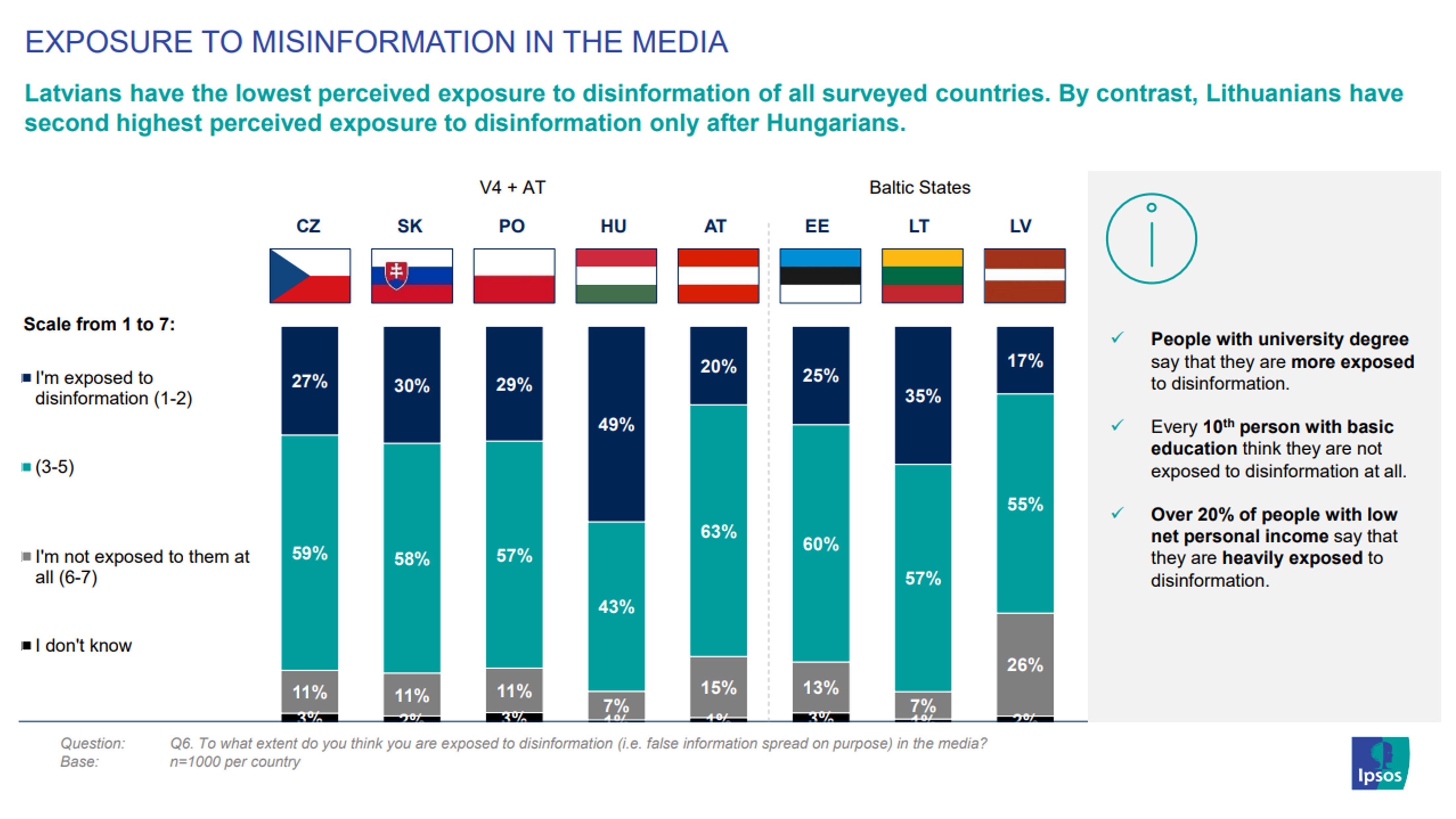Disinformation and Informational Chaos: Baltic Dive

According to the Ipsos study, Estonia and Lithuania have similar views on disinformation and information chaos, but Latvia differs significantly. Latvians trust social media more (new media at general), are more sceptical of disinformation, and are less likely to report exposure or identify contributing factors and consequences. However, Latvians are more prone to believe tested disinformation reports and less confident in preventive tools than their Baltic counterparts. Overall, Latvians appear disinterested and passive compared to Estonians and Lithuanians when it comes to disinformation.

Furthermore, the inclusion of visual content in current disinformation reports, such as misassigned pictures, leads to higher credibility scores compared to reports that only contain text. This finding applies to all surveyed countries and suggests that visual content can enhance the perceived credibility of misinformation. With the rapid evolution of deepfake technology, this could pose a significant challenge in the near future or even present.

About the research:
The research was carried out from 2nd till 15th September 2022 on a representative sample of the Internet population of the Czech Republic, Slovakia, Hungary, Poland, Austria, Lithuania, Latvia and Estonia (aged 18-65). A total of 1,000 respondents participated in each country, and the data collection tool was online panels in individual countries. The research was conducted in cooperation with the Central European Research Consortium Central European Digital Media Observatory (CEDMO) and sponsored by Google.



